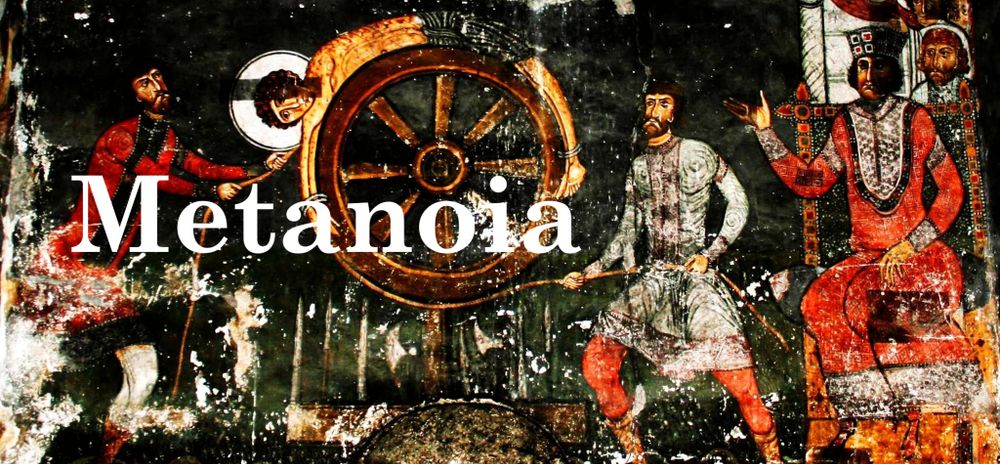Short Fiction – Metanoia
Upon the mountainside above the yawning abyss of the valley wherein the great necropolis of the Headless Saint lay as a shadow of brutal stone and sculpture with columns and pillars and mausoleums stretching on for countless miles beneath the fog, its highest reaches, the towers and spires of the battlements, piercing the turgid grey with the slender pride of ships’ masts at sea, above that, within the ruin of the old charnel house at the cusp of the village which had no name, the girl rose exhausted from her slumber upon the hard ground, her robe stained across with dark filth, and offered a prayer to Christ on her knees which ached, and rose up and went to the bucket of cold water left for her which was metal and dented and she took off her robe and she washed herself with the cold water and did not cry out as it touched her skin, and she took the towel from the wooden bench by the door and she ran the hard material of the towel across herself and it stung and pricked her all across her flesh, and when she was dried she stood and she offered another prayer mumbling through chapped lips in her voice like withered parchment (“Have mercy upon me, O God, according to thy loving kindness: according unto the multitude of thy tender mercies blot out my transgressions”), and she felt the cold air of the mountain creep in through the old ruined stone half-collapsed and felt the pale anaemic sun which reached in to bless her and she smelt the old bone beneath the floorboards where the corpses of all the martyrs who had not done good enough lay stacked their bones broken up and made into columns which lined the hall which led up to the altar where the nameless saviour of the village whom not one of the villagers could recall (“I believe he was a doctor, was he not?”) was interned with his full skeleton intact, preserved there behind glass sat with bony fingers knotted together by rope and grim pale skull twisted low in benediction by iron bolts, in a pose of eternal worship as behoved one of great honour, though no one knew what that honour had been but knew, according to this grand ossuary, that it must have been great, and therefore it was satisfactory, to all, that he was there.







